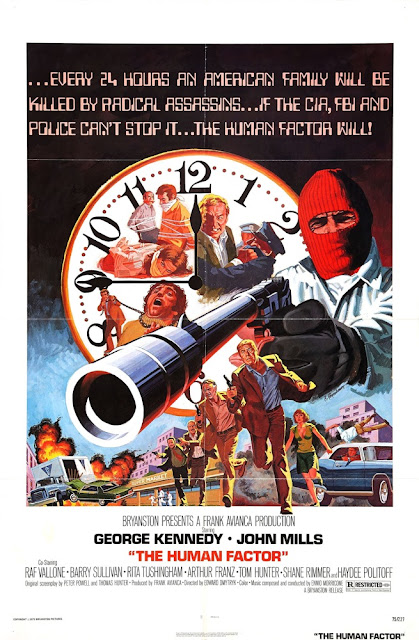Hey, remember that
wholesome movie starring former teen idol Bobby Sherman as a castaway trapped
on a leper-colony island in the Pacific? No? Well, chances are you’re not
alone, because He Is My Brother ranks
among the most obscure mainstream movies of the ’70s.
The picture has a
respectable degree of Hollywood gloss, and it benefits from the participation
of familiar talents including Keenan Wynn, who plays the priest overseeing the
leper colony, and director Edward Dmytryk, who closed out his long career in
ignoble fashion by helming this box-office dud. While you might understandably
think that He Is My Brother should be
avoided like, well, a leper colony, the movie isn’t awful, per se.
To be clear, it’s formulaic and padded and predictable, with
more than a few shoddy performances, and the overly sincere moralizing of the
piece makes He Is My Brother feel like a PSA for overseas missionary work. One should not investigate this
movie with expectations of surpassing quality. Nonetheless, some elements of He Is My Brother deserve respect,
including Wynn’s performance and the provocative issue of modernism clashing
with primitivism.
Jeff (Sherman) and his preteen brother, Randy (Robbie Rist), wake
in the leper colony following a shipwreck. Jeff is aghast, fearing that he and
his brother will immediately contract leprosy, but Brother Dalton (Wynn) calms
them down, explaining that the disease only spreads after long periods of
exposure, and further explaining that he’ll put the brothers on the next supply
ship when it leaves the island. Trapped among the lepers, Jeff watches Brother
Dalton battle to keep his flock intact while an indigenous mystic, The Kahuna
(Joaquin Martinez), promises salvation for those who return to ancient ways. Then
complications ensue. Jeff and his brother miss their boat, and Jeff becomes
romantically involved with an island girl, Luana (Kathy Paulo). None of this is
deep or surprising, but it’s all moderately interesting even though Sherman
gives a hopelessly vapid performance. The gruffness of Wynn’s portrayal provides helpful
balance, the locations are alluring, and the themes are meaningful no matter
how clumsily they’re handled.
He Is My Brother: FUNKY




